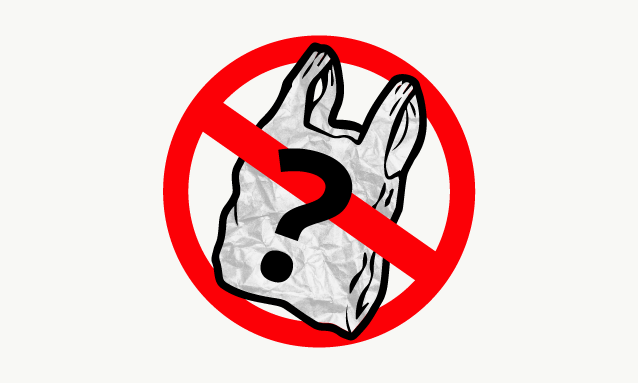
President Mokgweetsi Masisi has reportedly issued a directive for relevant ministries to set up a system geared towards collecting the plastic levy. This comes as the COVID pandemic continues to destabilise economies, Botswana included. Over the years, the plastic issue has been marred in controversy, including the revelation that while retailers charged consumers for carrier bags, they, in turn, did not pay the government levies as they should have. Shockingly, the reason cited is the lack of government mechanisms to collect the money.
2017: Botswana plastic levy – which Ministry does it fall under?
Introduced in 2007, collecting the plastic levy proved a cumbersome exercise for the Government, meaning businesses cashed in the uncollected money. While it was clear the aim of the plastic levy was mainly to fund environmentally-friendly practices, there also appeared to be confusion as to which Ministry was responsible for collecting the plastic levy. Appearing before the Public Accounts Committee (PAC) in 2017, then Minister of Environment, Wildlife and Tourism (as it was called at the time), Tshekedi Khama, however, shifted blame;
“During consultations with Botswana Unified Service and the Ministry of Investment, Trade and Industry, we were advised that collecting the plastic levy would be complex to administer and may not serve the purpose for which it was meant,” the Minister said.
“Based on this advice, my Ministry resolved to ban plastic carrier bags, a proposal which has been approved in principle. There is, therefore, no plan to introduce the plastic levy. That notwithstanding, the National Strategy Office had requested further consultations, which have not been conclusive up to now. We hope that a worthwhile solution emerges from the consultations, failing which, my Ministry will press ahead with the ban,” Khama added.
Asked why the Government insists on sticking with the process despite clear evidence of its complexity, Khama quipped;
“Unfortunately, such a task does not fall under our jurisdiction. The answer will certainly come from a different Ministry.”
The Minister is understood to have been referring to the Ministry of Investment, Trade and Industry.
2018: Botswana plastic ban – over before it even began!
Just as Minister Tshekedi Khama promised the previous year, the Government announced the ban on plastic would take effect from November 1 2018. Much to the delight of an increasingly eco-friendly nation, the retail and hospitality sector reacted with lightning speed to offer recyclable bags for life and embrace alternative, environmentally friendly packaging. Alas! The jubilation was not to last! Barely two weeks after announcing the ban on plastic carrier bags, the Government announced it had suspended the decision indefinitely.
Tshekedi Khama revealed that the decision to suspend the ban stemmed from concerns from manufacturers, who complained they were not consulted when the decision was made.
Business Botswana, an organisation that represents the interests of the private sector, embraced the decision to suspend the ban indefinitely. Business Botswana President, Gobusamang Keebine echoed the sentiment that there was no proper explanation from the Government regarding alternatives to plastic carrier bags. He also said those affected by the decision were not adequately consulted.
In a statement, the Ministry of Environment, Natural Resources Conservation and Tourism Permanent Secretary, Thato Raphaka issued a statement;
“The Waste Management (Plastic Carrier Bag and Plastic Flat Bag Prohibition) Regulations, 2018 has been postponed until further notice.”
“This means that the plastic bag ban will not take effect on the November 1, 2018. That is to allow further engagement on the implementation of the prohibition.”
“The public, the business sector and stakeholders are encouraged to continue with the good work that they started to reduce the negative impact of plastic bags on the environment, waterways and livestock in Botswana,” said Raphaka.
“Plastics have an adverse impact on human and animal health. For example, they serve as a breeding ground for mosquitoes and other vermin. Animals die from choking when they eat plastic bags,” said Raphaka.
“Plastics reduce the aesthetic value of the environment as they hang on trees and generally litter the environment. Plastic is not biodegradable, hence once deposited in the soil and landfills, it persists in the environment for a long time. In light of the above hazards presented by plastic carrier bags, the public is advised to be mindful and dispose of plastic bags in a manner beneficial to the environment and livestock,” he said.
2020: Collecting the plastic levy – a task too complex for the Government
The Minister of Finance and Economic Development, Dr Thapelo Matsheka said the Government would follow up and collect the plastic levy from retailers who have been collecting it from consumers. When responding to comments raised by Members of Parliament (MPs) on his Ministry’s proposed budget estimates for the financial year 2020-2021, Matsheka explained that the Government initially introduced the levy to reduce the use of plastic bags on account of environmental concerns. Parliament passed the plastic bag amendment to the Waste Management Act in August 2006 and implemented the new law the following year. However, Minister Matsheka said there was a challenge in that the Government did not have the resources to collect the levy.
“We have tried before to find a way of collecting that levy because that was the intention, but unfortunately, at the time of enacting the law, it wasn’t included,” he said.
He said they were in the process of collecting money as part of boosting government coffers.
“That will be done soon. We all know that Batswana continue to pay the levy, so we will amend the law to put in place sections to allow us to follow up with those who have been collecting it to surrender the levy fund to the Government,” he added.
MPs have complained that the value of one shopping from a retailer is now further increased by the cost of the plastic.
The Government continues to grapple with the mammoth task of devising a system to collect the plastic levy. It has also become all too clear the plastic ban is dead in the water. However, it is very gratifying to observe the retail sector remains resolute in offering alternatives to plastic carrier bags.
References: Botswana Safari News / http://www.mmegi.bw/index.php?aid=84696&dir=2020/march/02 & http://southerntimesafrica.com/site/news/botswana-in-hasty-plastic-ban-retreat



